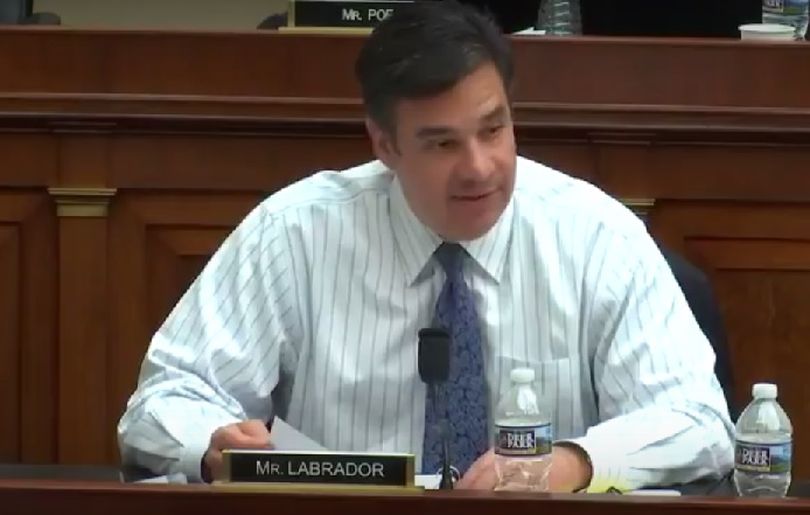Labrador’s bill to limit refugee resettlement clears House Judiciary on party-line vote

Idaho Rep. Raul Labrador’s legislation to limit refugee resettlement cleared the House Judiciary Committee this morning on a 15-11 party-line vote, with all Republicans present supporting it and all Democrats opposing it. The bill was reported out to the full House with just one amendment, sponsored by Labrador, to delete one section that sought to limit when victims of violence in foreign countries could be considered refugees. Nearly a dozen other amendments proposed by Democrats on the panel were rejected along party lines. You can read my full story here at spokesman.com.
Labrador said in a statement, “I am very pleased the committee approved my bill today. As Americans, we have a long tradition of helping refugees who, through no fault of their own, are fleeing war and persecution and wish to become contributing members of our society. However, our first priority when it comes to America’s refugee program is ensuring the safety and security of the American people. There are already documented cases of terrorists infiltrating the program, and with ISIS vowing to exploit it further, the time for congressional action is now.”
The bill would reduce the maximum number of refugees resettled in the United States from 110,000 to 50,000 a year, a change sought by President Trump; give states and local governments veto power over any refugee resettlement within their borders; step up security monitoring of resettled refugees until they qualify as permanent residents; and require a review of all prospective refugees’ social media postings, among other provisions.
Rep. Pramila Jayapal, D-Wash., called the bill “an un-American assault on our country’s bipartisan humanitarian record of welcoming those who are fleeing violence.” She said right now, one person is being displaced every 3 seconds in the world, and said, “We are going to meet the 50,000 cap next week, at a time when there is such turmoil in the world and such a need to welcome refugees.”
Labrador’s bill is co-sponsored by Rep. Bob Goodlatte, R-Va., the chairman of the House Judiciary Committee; it also has drawn eight other GOP co-sponsors. Labrador introduced a similar bill last year, setting the maximum number of refugees at 60,000 a year. It drew 25 co-sponsors, all Republicans, and passed the Judiciary Committee last March, but didn’t proceed beyond that.
Democratic members of the House Judiciary Committee criticized the bill as mean-spirited and lacking in compassion, but none of their proposed amendments were approved. When Jayapal proposed an amendment she said would protect victims of sex trafficking and forced prostitution from being rejected for refugee status due to having committed crimes, Labrador told her he was willing to work with her on that issue, but not to accept her amendment, which he said would go beyond just those victims.
“I oppose the amendment, but I would invite the gentle lady to work with us to see if there’s some language that we can do what you said in your words, which is not what the amendment does,” Labrador told her. “What you said in your words is that you’re trying to protect victims of forced prostitution. And I think we can agree that maybe that’s something we can do. But if you read the language of your amendment, it is much broader than that. … It protects people from any crime they have committed, not just forced prostitution.”
At Goodlatte’s request, Jayapal withdrew her proposed amendment.
The one approved amendment deletes Section 13 of the bill, according to Labrador’s office, because Labrador decided that issue could be addressed in other legislation. Here is the deleted section:
SEC. 13. LIMITATION ON QUALIFICATION AS A REFUGEE.
Section 101(a)(42) of the Immigration and Nationality Act (8 U.S.C. 1101(a)(42)) is amended by inserting “For purposes of this paragraph, a person may not be considered a refugee solely or in part because the person is displaced due to, or is fleeing from, violence in the country of such person's nationality or, in the case of a person having no nationality, the country in which such person last habitually resided, if that violence is not specifically directed at the person, or, if it is directed specifically at the person, it is not directed at the person on account of that person’s race, religion, nationality, membership in a particular social group, or political opinion.” before “The term ‘refugee’ does not include”.
The bill now can proceed to a vote in the full House, at the discretion of House GOP leaders.
